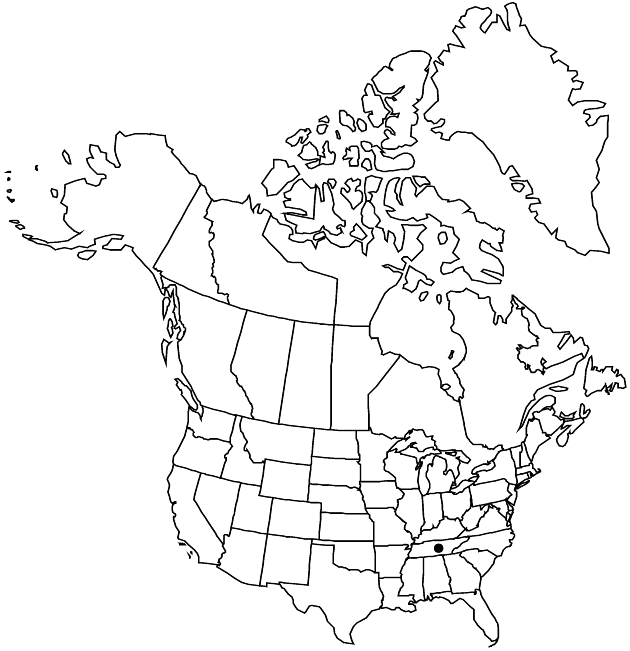Pityopsis ruthii
Man. S.E. Fl., 1341. 1933.
Perennials, 10–30 cm; rhizomes 3–10 cm. Stems 1–20, erect, green to brown beneath hairs, simple, slender, densely silvery-sericeous, glabrescent. Leaves: basal overwintering, blades linear-lanceolate, shorter than cauline, 30–40 × 3–4 mm, faces sericeous; proximal cauline withering by late summer; cauline crowded, overlapping, spreading to ascending, sessile, blades linear-lanceolate, 30–50 × 2–4.5 mm, margins entire, silvery-sericeous, apices acute, faces silvery-sericeous (hairs anastomosing). Heads 1–8 heads (per branch), in corymbiform arrays. Peduncles 0.5–4 cm, moderately to densely stipitate-glandular, sparsely sericeous; bracteoles 1–3, linear-lanceolate. Involucres narrowly turbino-campanulate, 6–8 mm. Phyllaries in 4–6 series, margins scarious (midnerves pronounced), apices acute, faces sparsely sericeous, moderately to densely stipitate-glandular. Ray florets 9–14(–18); laminae 6–8 mm. Disc florets 30–45; corollas 4.5–6.5 mm, tubes and proximal limbs sparsely pilose, lobes 0.5 mm, glabrous. Cypselae fusiform, ribbed, 3–4 mm, faces sparsely strigose; pappi: outer of linear to linear-triangular scales 0.2–0.8 mm, inner of 25–40 bristles 4.2–6 mm. 2n = 18.
Phenology: Flowering late summer–fall.
Habitat: Soil-filled cracks of phyllite boulders along rivers, in areas with little shade
Elevation: 200–400 m
Discussion
Of conservation concern.
Pityopsis ruthii is uncommon and known only from the Ocoee and Hiawasee rivers, Polk County. It is federally listed as Endangered and is in the Center for Plant Conservation’s National Collection of Endangered Plants. Changes in river flow due to dams have reduced the size of populations.
Selected References
None.
